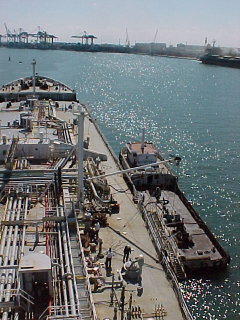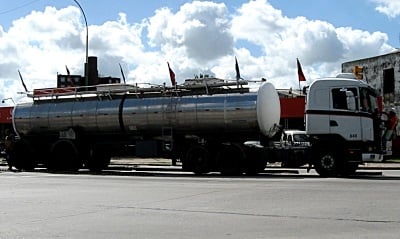Recent Fuel Changes and How They Affect You: Part 2
As a service to our customers, dealers and friends, Bell Performance hosts quarterly webinars on fuel topics of interest to their friends and their...

 Power generation plants in the United States have historically relied on three main fuels – coal, natural gas, and heavy fuel oil (also called #6 bunker C fuel oil). Coal and fuel oil were dominant fuels for power generation in past decades, but more recently, there has been a real shift with natural gas cutting into fuel oil’s share of the generation market. This is partly due to price and partly due to the clean burn and lack of fuel-related problems that natural gas plants tend to experience. Some of these natural gas plants do retain the ability to burn heavy fuel oil as a backup fuel; the ability to run on multiple kinds of fuel gives them price flexibility in the marketplace to adjust their fuel load relative to the cost of the two fuels, and limits their exposure to problems if the supply of one fuel or the other is cut off.
Power generation plants in the United States have historically relied on three main fuels – coal, natural gas, and heavy fuel oil (also called #6 bunker C fuel oil). Coal and fuel oil were dominant fuels for power generation in past decades, but more recently, there has been a real shift with natural gas cutting into fuel oil’s share of the generation market. This is partly due to price and partly due to the clean burn and lack of fuel-related problems that natural gas plants tend to experience. Some of these natural gas plants do retain the ability to burn heavy fuel oil as a backup fuel; the ability to run on multiple kinds of fuel gives them price flexibility in the marketplace to adjust their fuel load relative to the cost of the two fuels, and limits their exposure to problems if the supply of one fuel or the other is cut off.
While its market share for large power generation is decreased, heavy fuel oil is still used for small industrial power generation (such as to provide power at a factory or hospital) and in some power plants as well as in large engine applications like tanker and cruise ships. These large types of diesel engines are engineered to tolerate the ash and deposits that heavy fuel oil creates. How does Bunker C oil burn differently from regular diesel that you put in a big rig truck? Bunker C is the residual oil left over after the lighter, more volatile products (gasoline, #2 diesel, natural gas) are distilled out of the crude oil. It is heavy because the molecules are larger – hence it provides a lot of energy per unit of fuel. But because it’s the final oil left over, it has a lot more impurities (like sulfur and heavy metals), all of which contribute to ash and deposit formation as well as combustion emissions. In a large industrial diesel engine or an industrial furnace system, ash and deposits aren’t a big problem in terms of how the engines function. These systems can handle the by-products and so heavy fuel oil becomes the best fuel for their needs because it is also markedly cheaper than gasoline or diesel fuel.
Consumers who run fuel in home heating systems know that it isn’t the cleanest burning fuel. Hence the market for additive and treatments to improve the quality of heating oil remains robust. The same is true for industrial plants burning Bunker C oil. Treatments like Bell Performance’s ATX product line
have shown great benefits for reducing the slagging and deposition problems that fuel oil-powered furnaces and engines can commonly see. Reduction of slagging in boiler systems also has positive effects on other parts of the system, such as post-combustion areas susceptible to corrosion from fuel-related acid, and air heater which can become fouled in some circumstances. Fuel oil treatments like Bell ATX reduce these issues and improve the number of hours of problem-free operation for most fuel oil systems.

As a service to our customers, dealers and friends, Bell Performance hosts quarterly webinars on fuel topics of interest to their friends and their...

The concept of preventive maintenance isn't new—we see it everywhere in our daily lives. You change your car's oil before it breaks down. You...

Imagine a scenario where a hospital faces a power outage but finds its backup generators faltering due to poor fuel quality. Such a situation...